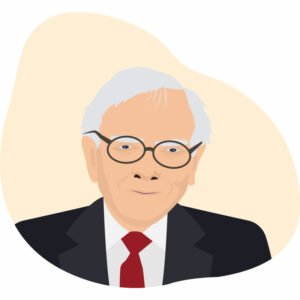
The current richest person in the world has amassed wealth beyond imagination. Their fortune is often a topic of discussion, not only among people but in the media as well. But who is this person, and how did they accumulate such wealth? How has their wealth affected their personal life and the global economy?
The Current Richest Man in the World
Elon Musk, an entrepreneur and business magnate born in South Africa, is currently the world’s richest man. Musk is the founder, CEO, and chief engineer/designer of SpaceX, CEO and product architect of Tesla, Inc., and founder of The Boring Company and Neuralink.
Musk’s source of wealth comes primarily from his shares in Tesla and SpaceX, both valued in the billions of dollars. His net worth fluctuates, but as of February 2023, it is estimated to be around $180 billion (over three trillion Rand), which is over three trillion Rand.
Musk’s rise to wealth was not without its challenges. He has faced numerous setbacks in his various businesses, including financial struggles and failures in several projects. Despite these setbacks, Musk continued to innovate and push forward, eventually leading to the success of his companies.
Musk’s wealth has had a significant impact on his personal life. He is known for living a lavish lifestyle, owning multiple properties and luxury cars. His wealth has also allowed him to make significant philanthropic contributions, including donations to renewable energy research, and education initiatives.
Musk’s success and wealth have made him a polarising figure in the media and society. While some praise his entrepreneurial spirit and innovation, others criticise his lack of social responsibility and the potential negative impact of his companies on the environment and society.
Overall, Elon Musk’s wealth and success have made him an icon in the world of business and technology. His legacy will undoubtedly continue to shape the future of the industries he has impacted.

The Legacy of Past Richest Men in the World
Here are some of the past richest men in the world and their legacies:
- John D. Rockefeller: An American industrialist who founded the Standard Oil Company. Rockefeller’s wealth was equivalent to around $350 billion (over six trillion Rand) in today’s currency, making him one of the wealthiest people in history. His legacy includes significant philanthropic efforts, including establishing the Rockefeller Foundation, which focuses on improving global health and education.
- Andrew Carnegie: A Scottish-American industrialist who made his fortune in the steel industry. Carnegie’s wealth was estimated to be around $310 billion (over five trillion Rand) in today’s currency. His legacy includes significant philanthropic efforts, including establishing numerous libraries and educational institutions.
- Henry Ford: An American industrialist who founded the Ford Motor Company. Ford’s wealth was equivalent to around $199 billion (over three trillion Rand) in today’s currency. His legacy includes the widespread use of the assembly line in manufacturing and the development of affordable automobiles that revolutionised transportation.
- Bill Gates: An American entrepreneur who co-founded Microsoft Corporation. Gates’ wealth was estimated to be around $136 billion (over two trillion Rand) in 2020. His legacy includes philanthropic efforts through the Bill and Melinda Gates Foundation, which focuses on global health, education, and poverty alleviation.
- Warren Buffett: An American investor and business magnate who is the chairman and CEO of Berkshire Hathaway. Buffett’s wealth was estimated at around $104 billion (almost two trillion Rand) in 2020. His legacy includes his investment strategies and philanthropic efforts, including the Giving Pledge, a commitment by some of the world’s wealthiest people to give away the majority of their wealth to address society’s most pressing problems.

The Role of Technology in Creating Wealth
Technology has played a significant role in creating wealth throughout history. From the invention of the printing press to the rise of the internet, technological innovations have revolutionised how we live and work, creating new opportunities for individuals to accumulate wealth.
Elon Musk is a prime example of how technology can create vast wealth. Musk co-founded PayPal, revolutionising online payments, and later founded Tesla, now the world’s largest electric vehicle manufacturer. Additionally, Musk’s SpaceX company is at the forefront of space exploration and has secured several contracts from NASA to transport astronauts to the International Space Station.
Technological advancements have also created opportunities for entrepreneurs to develop new businesses and disrupt existing industries. For example, the rise of e-commerce has made it easier for individuals to start online stores and reach a global audience. In contrast, advances in automation and robotics have made manufacturing and production more efficient, reducing costs and increasing profits.
However, while technology has undoubtedly created wealth and opportunities, it has also led to job displacement and income inequality. As automation and artificial intelligence become increasingly prevalent, many jobs previously performed by humans are becoming automated, leading to job losses and the concentration of wealth in the hands of a few individuals.
Access to technology is not evenly distributed globally, and those who do not have access to it may find it more challenging to compete in the global marketplace. As such, there is a need for governments and organisations to ensure that everyone has equal access to technology and its benefits.
» More: on the world’s top-valued companies!
The Perils of Wealth
While wealth is often considered a status symbol and a measure of success, extreme wealth can come with hazards. Below are some that people might experience.
- Psychological toll: Extreme wealth accumulation can affect an individual’s mental health. It can lead to feelings of isolation, anxiety, and depression, as well as a loss of purpose and identity.
- Lack of social responsibility: Wealth can create a sense of detachment from society, leading to a lack of responsibility towards the welfare of others. This can result in actions that harm society, such as avoiding taxes or engaging in unethical business practices.
- Wealth inequality: The wealth accumulation by a few individuals can exacerbate wealth inequality, leading to social and political instability. It can also create a divide between the wealthy and the rest of society, leading to resentment and tension.
- Privilege and entitlement: Wealth can create a sense of entitlement and privilege, leading to an attitude of superiority and a lack of empathy towards the less fortunate. This can lead to a disconnect from reality and a lack of understanding of the struggles faced by others.
It is essential to acknowledge the potential negative consequences of extreme wealth and work towards creating a more equitable and just society. This can be achieved through increased philanthropic efforts, ethical business practices, and a commitment to addressing wealth inequality. By recognising the perils of wealth and working towards solutions, we can create a more sustainable and equitable future.
Conclusion
The concept of wealth and the allure of being the richest person in the world has fascinated people throughout history. The role of wealth in society will continue to be discussed and debated.
Recognising the potential negative consequences and working towards creating a more equitable and just society is essential.
As the global economy evolves, the ranking of the world’s richest people may change, and the impact of extreme wealth may shift. However, addressing wealth inequality and promoting social responsibility will remain crucial in creating a better future for all.
About Arcadia Finance
Obtain your loan seamlessly through Arcadia Finance. No application fees, and pick from 19 reputable lenders, all meeting the standards set by South Africa’s National Credit Regulator.
FAQs
As of March 2023, Elon Musk’s net worth is estimated to be around $230 billion (over four trillion Rand), making him the richest person in the world.
SpaceX has disrupted the space industry by developing reusable rockets that drastically reduce the cost of launching payloads into space. This has opened up new space exploration and commercialisation opportunities, such as satellite launches and potential space tourism.
Amazon has revolutionised the retail industry by introducing the concept of e-commerce and creating a vast online marketplace for consumers. This has led to increased competition and pressure on brick-and-mortar retailers to adapt to changing consumer preferences and offer more convenient online options.
Technological advancements have led to job displacement in certain industries, particularly those that can be automated or performed by artificial intelligence. However, they have also created new job opportunities in areas such as software development, data analysis, and e-commerce.
Blockchain technology can potentially revolutionise the finance industry by introducing decentralised and secure systems for transactions and record-keeping. This could reduce costs and improve transparency and security in financial transactions. However, widespread adoption of blockchain technology may take time due to regulatory hurdles and the need for standardisation.
Fast, uncomplicated, and trustworthy loan comparisons
At Arcadia Finance, you can compare loan offers from multiple lenders with no obligation and free of charge. Get a clear overview of your options and choose the best deal for you.
Fill out our form today to easily compare interest rates from 19 banks and find the right loan for you.


